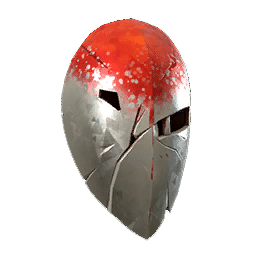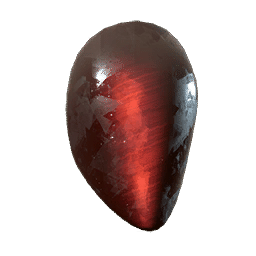Way of the Absolver
Monk Subclass
Prospects are mysterious and rare martial artists who are instantly recognizable by their unique masks. They fight with an ever-evolving style and bear special jewels called Tension Shards through which they can channel their Ki. Only the strongest Prospects can claim the coveted title and cloak of an Absolver.
The Mask
At the 3rd level, you become a Prospect. This is symbolized by a mask that magically attaches to your face. Any mask that covers the face completely is capable of becoming a Prospect mask, and you can change between them freely like a piece of clothing. However, you can never bare your face again, and switching masks occurs by magically removing the old one and placing the new one on your face in the blink of an eye. This is the curse you bear and the badge you wear. You gain proficiency in Deception and Intimidation. If you already had those proficiencies, you use twice your proficiency bonus for those skills. However, your mask makes you quite distinguishable.
Tension Shards
At the 3rd level, Prospects learn to channel their Ki through small gems called Tension Shards. These charge up during battle and during meditation, and cannot be seen or destroyed by other creatures.
When you deal or take damage, you fill a Tension Pool with points equivalent to the amount of damage dealt. When you hit 40 Tension Points, the pool empties and you regain a point of Ki. This pool drains without returning a point if a minute passes without it gaining points. If you are at full ki and you deal damage, the pool will not fill.
Additionally, you can bind yourself to one weapon that you are proficient with in the same way an Eldritch Knight would. That is, you may perform an hour long ritual during a rest to bind a weapon to yourself or unbind it, and thereafter you may summon the weapon to your hand as a bonus action as long as it is on the same plane of existence.
Shard Powers
At 6th level, you can choose two of the following abilities to use through your Shards. You may replace the two abilities with any other two whenever you take a short or long rest. Skills that let you cast a spell do not require material components.
At 11th level, you may have a third ability ready, and at 16th level, you may have four.
-Heal: As a bonus action, you steady your focus. The next attack you deal against a hostile creature will heal you for an amount equivalent to the damage you deal. If you miss or do not attack, this bonus can carry to your next turn, but it is lost if you take any damage. Consumes 4 Ki points.
-Exhaust: As a bonus action, you attempt to drain ki from an opponent within ten feet. The target makes a Constitution Save against your Ki DC. If they fail, they have disadvantage on their next attack and they can only take one action, or one bonus action, and cannot make reactions when their turn comes around. Consumes 2 Ki.
-Shockwave: You can expend 2 Ki points to cast Thunderwave at first level.
-Earthquake: You can spend 2 Ki points to cast Earth Tremor at first level.
-Gravity: You can spend 1 Ki point to attempt to knock a target within fifteen feet prone as a bonus action. They make a Strength saving throw against your Ki Save DC. If they fail, they fall prone and take 1d6 points of damage. They take half as much on a successful save and do not fall prone.
-Shield: You can spend 2 Ki points to cast Blade Ward or Shield. You can use Blade Ward as a reaction in this way when you are attacked.
-Silence: You can spend 4 Ki points to cast Silence or Pass Without Trace.
Fighting Style
At 11th level, you can choose one of the following fighting styles to gain. These fighting styles, excluding Stagger, cannot be used if the incoming attack would have missed you anyway. Damage negated through your Fighting Style will go into your Tension Pool unless otherwise specified.
Forsaken: You can use a reaction to attempt to parry an incoming melee attack. Make an unarmed attack roll contested by your opponent’s roll. If your roll is higher, their attack will miss, and your unarmed attack will connect and deal damage, even if you didn’t meet their AC. The negated damage will go to your Tension Pool, but your counter attack’s damage will not.
Windfall: You can use a reaction to attempt to dodge an incoming melee attack. Make a Dexterity (Acrobatics) check against your target’s attack roll. If your check beats out their attack, you dodge the attack in a way that leaves them open. Attacks targeting this creature have advantage until the beginning of its next turn, and any further attacks they make this turn will have disadvantage.
Kahlt: You can use a reaction to attempt to absorb an incoming melee or ranged attack. Make a Strength (Athletics) check against your target’s attack roll. If your check beats out their attack, you absorb the hit without taking damage and gain Temporary Hit Points equivalent to your proficiency bonus. If you strike this attacker thereafter, any remaining Temporary Hit Points granted by this feature are converted to normal Health Points, though any points that would go over your maximum remain as Temporary.
Stagger: When a melee attack misses you, you can make an unarmed strike as a reaction. You can expend a point of Ki to make two unarmed attacks instead. The attack that missed will not have its damage go into your Tension Pool, though the counter attack’s damage will.
Absolver
At 17th level, you become a qualified Absolver. Whether or not you wear the cloak that comes with it is up to you, but you gain the following benefits.
Combat Deck: Infinitely knowledgeable on the art of combat, you can compose a fighting style from moves you face in battle or training. You gain proficiency with two weapons of your choice. These weapons count as Monk weapons.
Array of Mastery: You gain a Fighting Style you didn’t pick at 11th level.
Focused Will: Your Tension Pool grants you a point of Ki at 25 points instead of 35.


